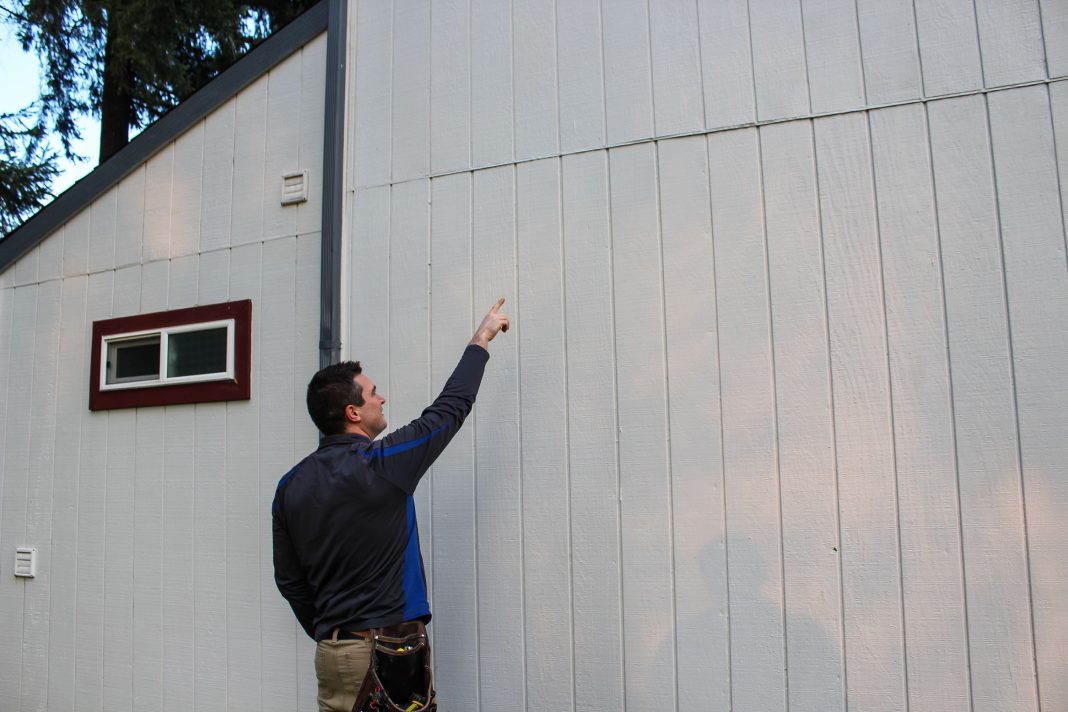Your home is an investment, but if you wind up spending too much money on repairs, you may feel like you are living in a money pit, rather than the house of your dreams. “Every home needs regular preventative maintenance to keep time and the elements at bay,” says Dwayne Boggs, owner of Boggs Inspection Services. “Some major repairs are unavoidable, but there are some that won’t be needed as often, and others that can be avoided completely if you know what to look for.” Here are the 10 most expensive home repairs and how to avoid them with tips from Dwayne Boggs.
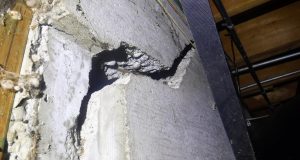
Fixing a Foundation
A good foundation is essential to a sturdy structure. Repairing a cracked foundation can cost thousands of dollars or more. “Foundation cracking, especially in our region, is most often caused by water buildup around the perimeter of the home,” says Dwayne. That’s why ensuring gutters and other perimeter drainage systems are in good order is important. Ensure that soil slopes away from the foundation on all sides. Look for puddling around your home or soggy ground that persists past the rainfall. And any water in the crawlspace should be cause for concern. Call a professional if you notice these signs.
Roof Replacement
Keep an eye out for missing shingles and replace any that are missing or loose. Look for sagging or buckling. Even if you don’t feel comfortable going up on your roof, you will save money over the long run by hiring a professional to check out your roof periodically and make minor repairs, which can extend the life of your roof considerably.
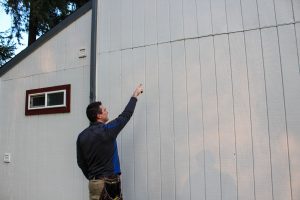
Replacing Siding
Keep up on painting and be sure to check and replace worn or missing caulk at least once a year. Also, check that your gutters are clear and draining correctly to keep rain from pooling up and running down the sides of your home.
Getting a New HVAC Unit
Replacing filters regularly keeps your system from working too hard. Have a professional come out for an annual service to keep your system in tip-top shape. “Regular service will ensure that your system is running efficiently, saving you money on costly repairs and reducing your energy costs as well,” explains Dwayne.
Broken Water or Sewer Lines
Avoid using harsh chemical products in your drains and make sure your pipes are properly insulated against freezing winter temperatures. “Even products that are marketed as safe for plumbing or septic systems can cause damage to pipes and fittings and it’s best to keep use of harsh chemicals to a minimum,” says Dwayne. You can also hire a plumber to clean out your pipes every couple of years, as well.
A New Septic System
“It is recommended that you have your septic pumped every three to five years,” says Dwayne, “But even if you don’t get it pumped, a regular inspection every three years will ensure that your system is working efficiently.” If you notice your drains are running slow, or your toilet won’t flush, get that checked immediately.
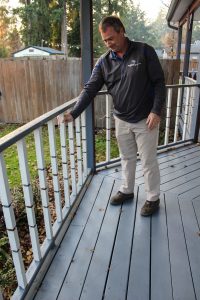
Replacing a Driveway
Patch and repair any crumbling or cracked areas in your driveway to keep the freeze-thaw cycle at bay. When planning landscaping, consider the species of trees planted near driveways and avoid trees that have aggressive and spreading root systems that can damage pavement or concrete.
Replacing a Deck
Regular cleaning and sealing or painting are key to keeping your deck in top shape. Don’t allow wet leaves to sit on the deck surfaces for an extended period of time. And ensure that you are doing regular inspections to repair and replace any damaged or rotting boards.
Mold Removal
Mold thrives in moist environments, so it is important to address any leaks quickly to ensure moisture does not build up. Regular use of ventilation in bathrooms can prevent mold from growing. “Attics can be at risk for mold growth when bathroom ventilation is not properly installed or damaged,” says Dwayne. “Damage can occur over months and can easily go unnoticed by the homeowner.” If you’ve had recent roof repairs or replacement, ensure the ventilation is hooked back up properly following those repairs to save you the headache and expense of a mold problem.
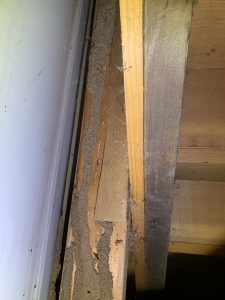
Termite Damage
“Termite damage is costly and pretty much completely avoidable,” says Dwayne. Don’t stack firewood against the home. Clear any brush, and leaf debris seasonally, and don’t leave unfinished wood around the exterior of your home to encourage these destructive pests. Regularly check for shelter tubes or hollowed-out wood, which are signs of termite infestation, and consider having a professional pest inspector do periodic inspections of your home and property.
Keeping on top of regular maintenance and repairs can save you big in the long run. “If you’d like a well-trained home inspector to help you identify any areas of concern, contact us to set up an inspection,” says Dwayne. Boggs Inspection Services has performed thousands of inspections in the Puget Sound region, helping families protect themselves against costly repairs by providing them with important information about protecting one of their greatest investments, their home.
Sponsored









































